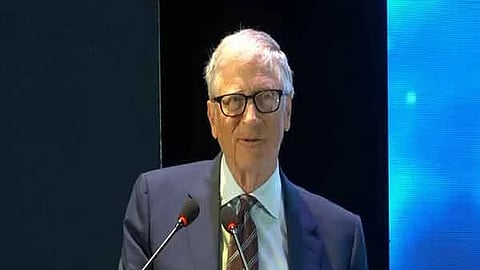

Bill Gates, co-founder and former Chief Executive Officer of Microsoft, stated that the tech industry (and the world at large) is in the midst of an AI (artificial intelligence) bubble.
Comparing the hype around AI technology with the dot-com boom (and crash) of the late 1990s, Gates warned that several companies’ investments in AI technology “will be dead ends.”
The Microsoft co-founder made these predictions at CNBC's "Squawk Box" event yesterday, October 29. Acknowledging that the potential value of AI will be very high, Gates stated that there was “a frenzy” around the technology.
“Some of these companies will be glad they spent all this money. Some of them, you know, they'll commit to data centres whose electricity is too expensive," he said.
Companies like OpenAI and Elon Musk's xAI are investing hundreds of billions of dollars in data centres. OpenAI has formed a USD 500 billion partnership with companies such as Nvidia and Oracle. Microsoft plans to quadruple its data centres over the next two years.
What is the ‘dot-com bubble’?
In the 1990s and early 2000s, there was intense speculation around internet-based companies, driven by excitement over the growth of the World Wide Web.
Investors poured billions into companies and start-ups with ‘dot-com’ addresses, ignoring profits and real business models in favour of rapid expansion and market share.
While the stock prices of these companies rose dramatically, they eventually crashed because they could not deliver the revenue that matched their investments, thus wiping out millions of dollars from the stock market.
While some companies from this period, like Amazon and eBay, survived and are now considered tech giants, the ‘dot-com bubble’ is considered a cautionary tale for the tech industry on the dangers of overspeculation and investing in companies based on hype and potential, rather than business fundamentals.
Given the hype surrounding AI, many industry stalwarts have been warning of a possible AI bubble.
Even OpenAI CEO Sam Altman has suggested that AI could be a bubble, implying that investors were "overexcited about AI." Earlier this year, Meta CEO Mark Zuckerberg predicted the possibility of an AI bubble.
According to commentators, it is not a question of if the AI bubble will burst, but when.
